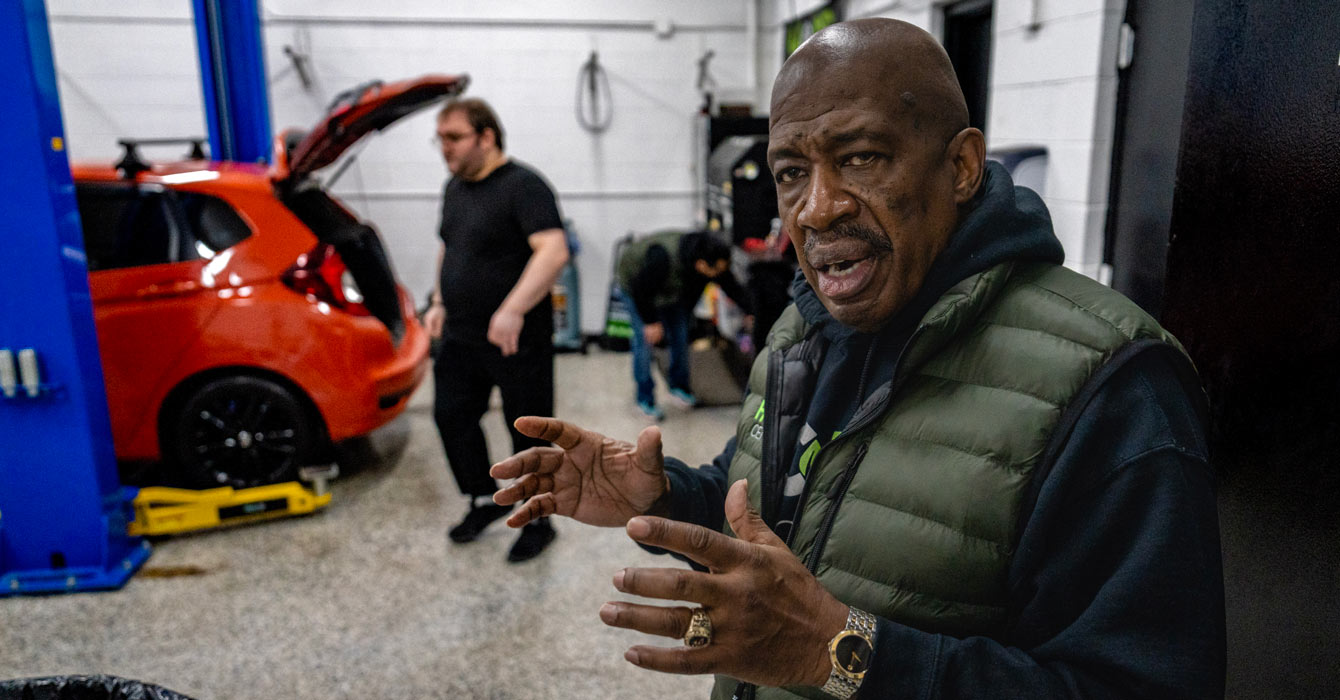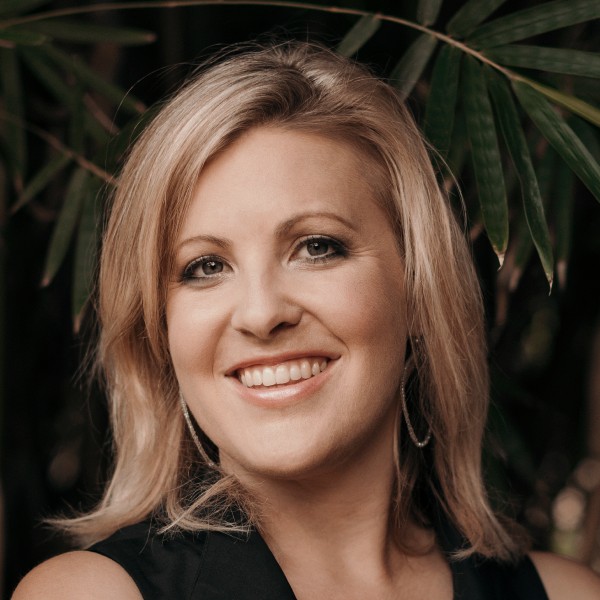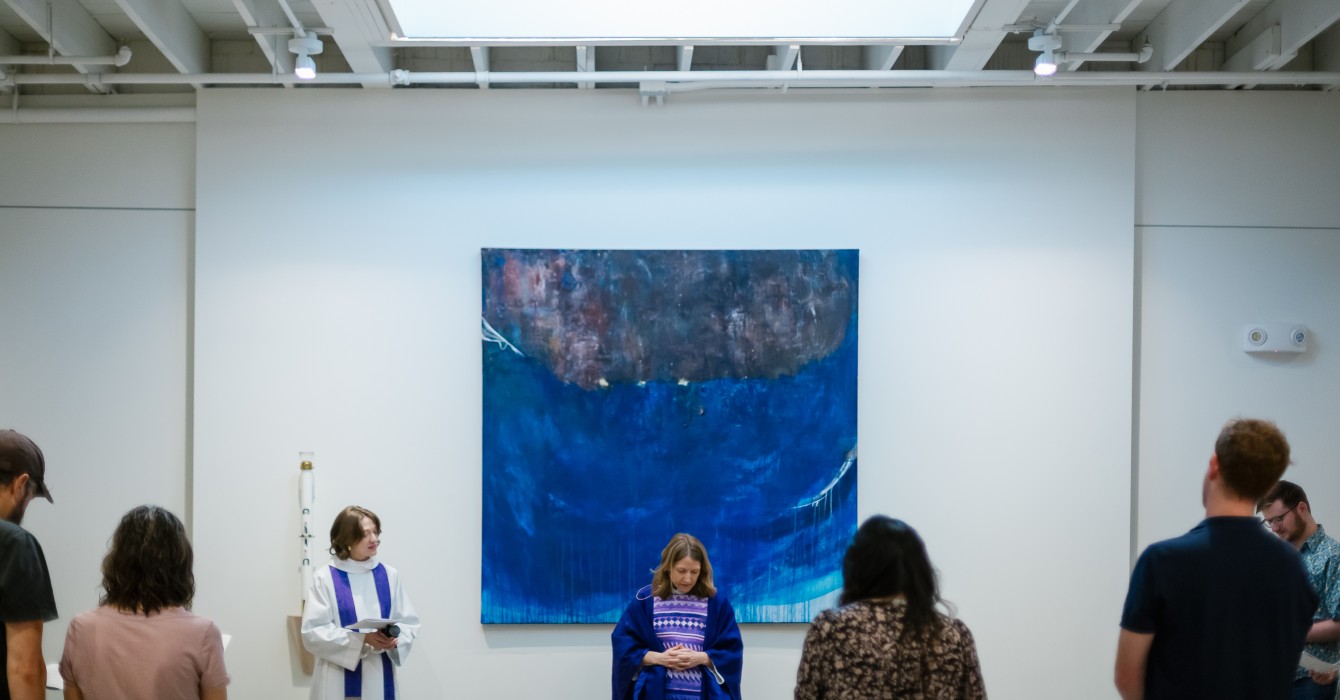A giant mural of butterflies adorns the door to the Hope Center garage. Its caption reads “Wings of Hope,” signifying the journey of the immigrant community in Blue Island, Illinois, said the center’s founder and director, Moises Mendez.
For Mendez, the wings are a reminder of his own family and his own journey through struggle, change and growth, and he hopes that they inspire other families in the area to be and remain resilient.
The Hope Center is a community center born out of a local church with the mission to not simply “give fish” to their neighbors but rather empower those neighbors to become creators and leaders themselves through programs in agriculture, technology and auto mechanics.

Growing up in Blue Island, an underserved community a few miles south of Chicago, was not easy for Mendez. He saw some of his friends fall victim to gun violence. He saw some of his neighbors go to sleep hungry — and some still do, he said.
Despite it all, he weathered storms of poverty and a lack of resources thanks to his hardworking parents, who immigrated to Illinois from Mexico and taught him the value of family, work and faith. Those were the pillars that shaped his life, Mendez said.
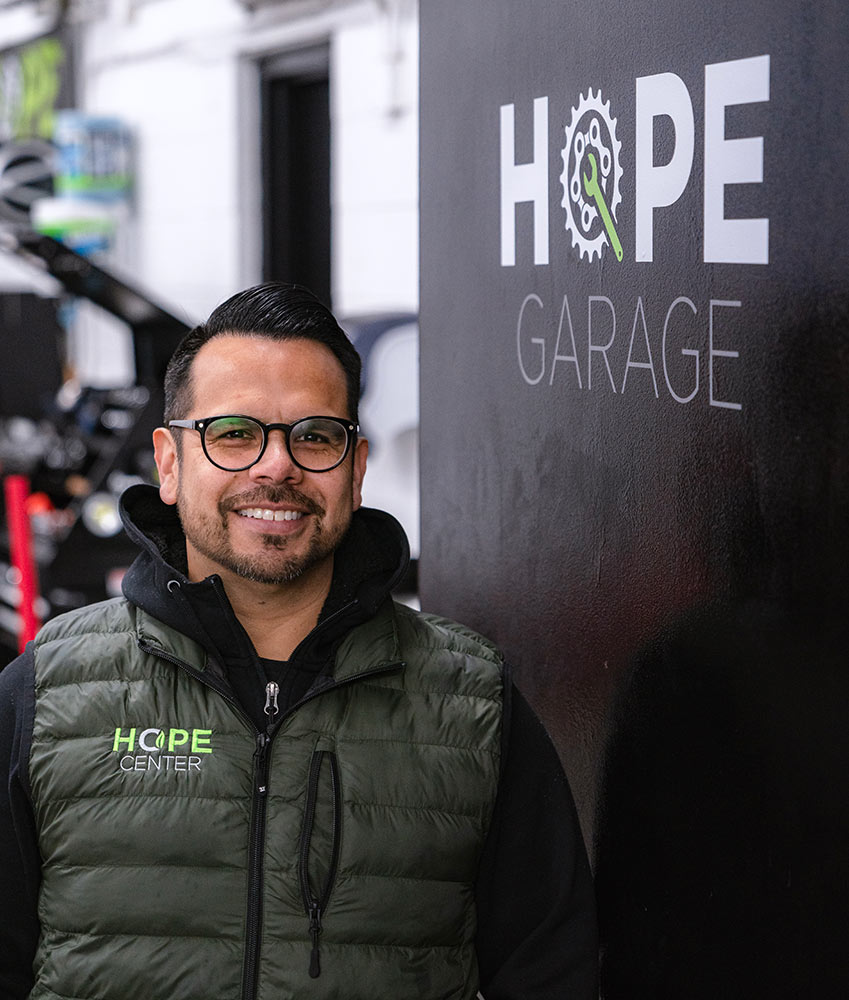
So when he found himself with a growing family, multiple college degrees, a fruitful job, a new home and a sports car at age 25, he began to question his mission in life.
“I started thinking about my community and asked myself, ‘Why me? Why did I get these opportunities and not somebody else?’” he said. He recalls praying for clarity: “God, do I use this opportunity to do something else with the gifts that you’ve given me?”
Now, almost 20 years since that initial question, Mendez has found his vocation, he said, and God has answered his prayers.
In 2015, Mendez went back to Blue Island to serve his community as a pastor at a satellite campus of Christian Life Center, but after a couple of years, he saw a need to close the satellite and pivot to offering community services instead. In 2017, he founded the Hope Center “out of a vision to inspire hope in Blue Island.”
During the COVID-19 pandemic, as the world changed, so did Mendez’s mission. He refocused his vision for the center to fostering value in the community in four main areas: spiritual, intellectual, social and economic.
Where does your attention turn when you experience success? What does success mean for you?

“I’m still a pastor in a sense,” Mendez said. “[But] my calling is behind a platform that empowers people, that helps people see their potential and increases their agency. A platform that enriches the community and changes culture.”
Thankfully, the leaders of the Christian Life Center believed in his expanded vision when he proposed it after transforming the church in 2020 to address food insecurity in partnership with the Greater Chicago Food Depository. The church’s senior co-pastor Jerry McQuay offered to fund the model as long as Mendez could raise money to keep it growing, Mendez said. The two share the mission of giving back to the community.
“We called it the Hope Center, but it was just a room, and it had a food pantry in conjunction with the church,” he said. Though it was a model that brought in people in need, it was not proactive for the church or for the families, and often the same people would stop by for food year-round.
Recognizing the need for a more holistic way to approach the community, he created a blueprint of skill-based workshops and programs, drawing on his knowledge and network, and galvanized his colleagues in different professional fields to volunteer to kick off the center, he said.
At present, Hope Center has a community garden, an automotive garage and a technology services department, all with individual directors and various programs.
What are the goals of your congregation? Would a different organizational form provide a means to have more impact among your neighbors?

The agriculture initiative, Hope Garden, aims to address food insecurity in the community. There are monthly workshops and teaching events for everything from germinating seedlings to canning and selling products. Thanks to Rocio Arevalo, the director of Hope Garden, participants have even created a signature salsa.
There is also instruction for the community in growing vegetables with hydroponic machines. Last year, the center harvested and gave over 500 pounds of organic vegetables to the community. This summer, the goal is to build pizza ovens and invite the community to make pizza with ingredients they harvest while also building togetherness and empathy, Mendez said.
“We are excited for this year,” said Mendez, smiling as he walked through the garden that is awaiting weather warm enough for planting.
What might your congregation or denomination do to launch a ministry?
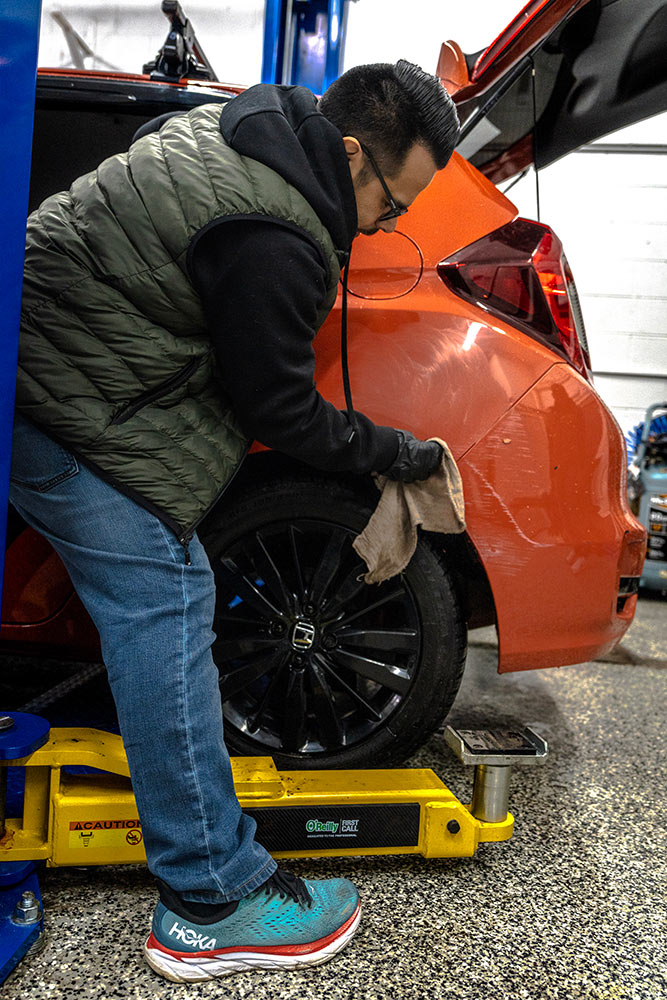
This spring, Hope Garage kicked off its programming with a workshop for women to help them learn basic car maintenance skills. The garage, run by Len Stallworth, is a heated space equipped with all kinds of tools for teaching community members about auto mechanics — both to help them save money on their own auto maintenance and to help them open doors to lucrative careers.
According to Mendez, this is the modern look — and the future — of evangelism.
“People don’t care how much you know until they know how much you care,” he said, quoting American author John C. Maxwell.
When the center was run as a church, offering only services, they struggled to get people through the doors.
“People were suspicious of who we were,” said Mendez, who first questioned becoming a pastor because of the stigmas and biases he learned from the Christian church growing up.
How can you train, teach and empower others and therefore multiply impact?
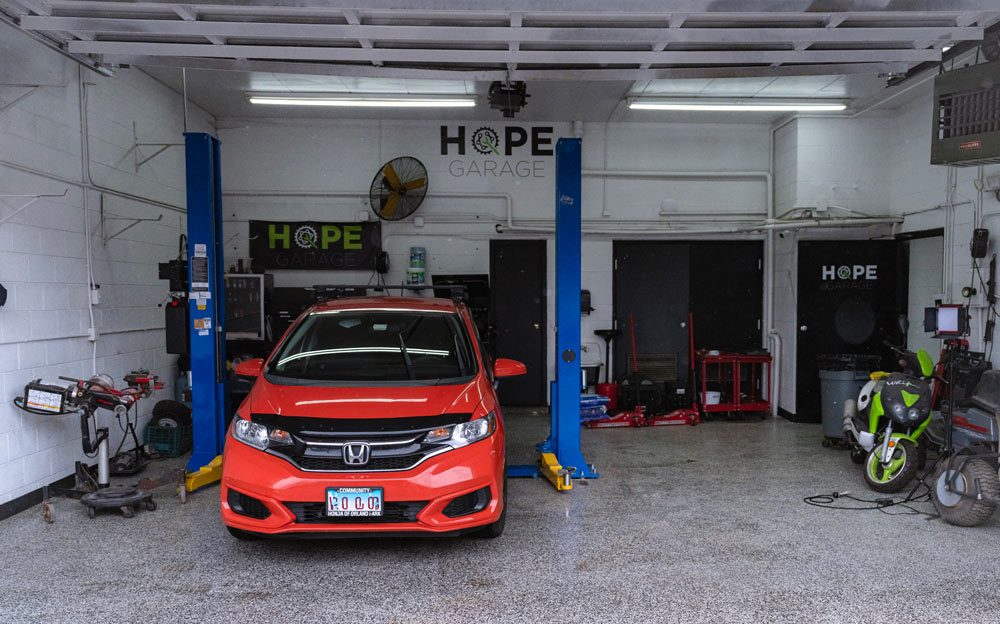
“There’s not a time when people don’t ask why we are doing what we’re doing,” he said. At the center, instead of telling them, they show them.
Lydia Hollins, 51, found her way to the center after learning of a brake certification workshop being offered for women. She saw an ad on Facebook and signed up. She decided to take the class because, she said, “I figured it would be a good skill to have and save me some money in the long run.”
Hollins did not know that it was a Christian-run center, but she is thankful to be a part of it.
“It’s amazing what they’re doing to help the community and to help people to be more independent in life,” Hollins said. “The teaching aspect is so important, especially for women and people of color. It’s things people don’t normally expect us to know. They give us their time and knowledge. It’s powerful.”
Mendez, now a father of four, said he hopes to create for others the same opportunities — or a pathway to the opportunities — that he had growing up.
The re-imagined center, now going into its third year, is mostly run by volunteers. But there are some funds available from grants or partnerships. Mendez provides stipends for the program leaders and hopes to pay them more in the future.
Stallworth had been learning about the Blue Island neighborhood since the inception of the Christian Life Center almost 10 years ago. He said one of the keys to the center’s success is the work that Mendez and all the volunteers have done to reach out to the community, making appearances in parades and at community events and collaborating with other organizations in the area.
How can you share the financial gains of a ministry with those who are investing their time to make it happen?
Mendez’s dream is for the center to become a unique template for other pastors to replicate in their communities, incorporating it — as appropriate to their specific needs — into the resources and skills already available in their areas.
“It really depends on what the needs are and what are the assets in the community that you can utilize,” Mendez said. “But you also need stakeholders and skilled folks that are from the community that are willing to champion some of those efforts.”
What are the assets in your community that can be organized to help neighbors meet challenges?
Questions to consider
- Where does your attention turn when you experience success? What does success mean for you?
- What are the goals of your congregation? Would a different organizational form provide a means to have more impact among your neighbors?
- What might your congregation or denomination do to launch a ministry?
- How can you train, teach and empower others and therefore multiply impact?
- How can you share the financial gains of a ministry with those who are investing their time to make it happen?
- What are the assets in your community that can be organized to help neighbors meet challenges?

